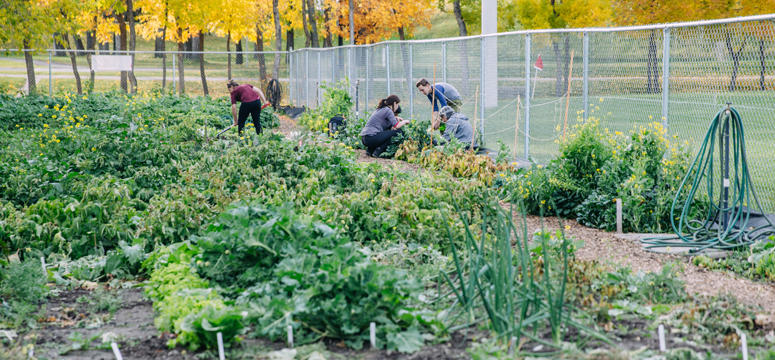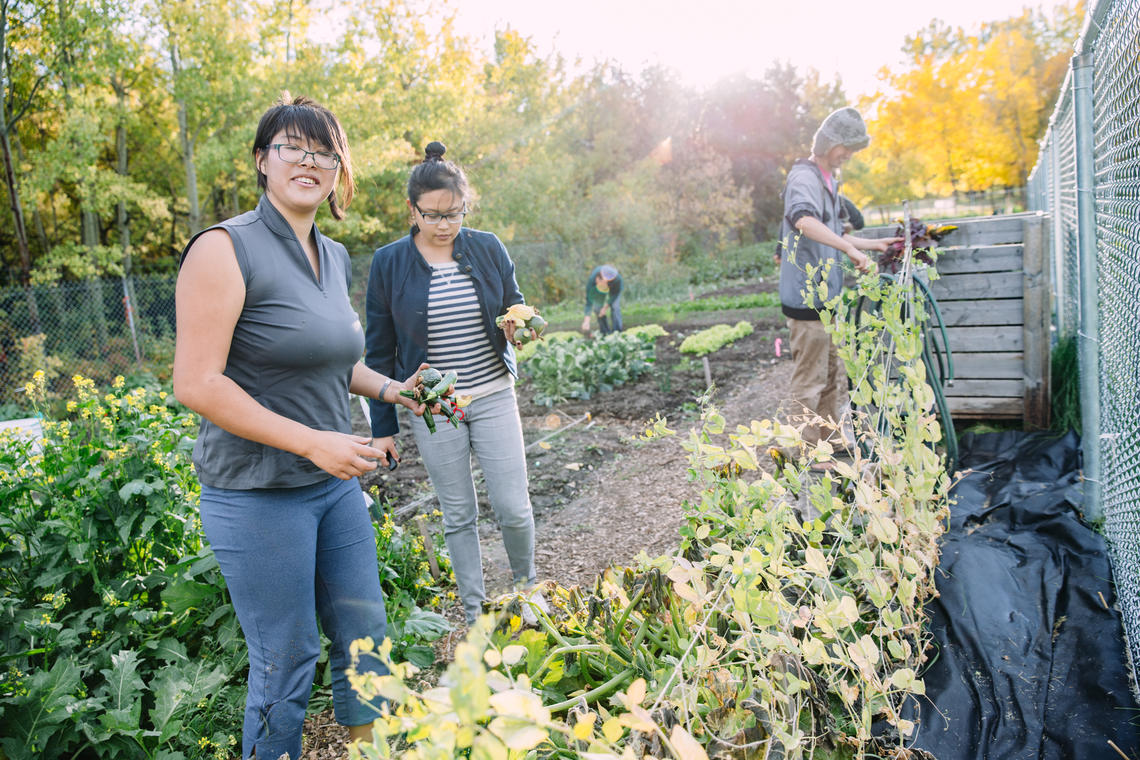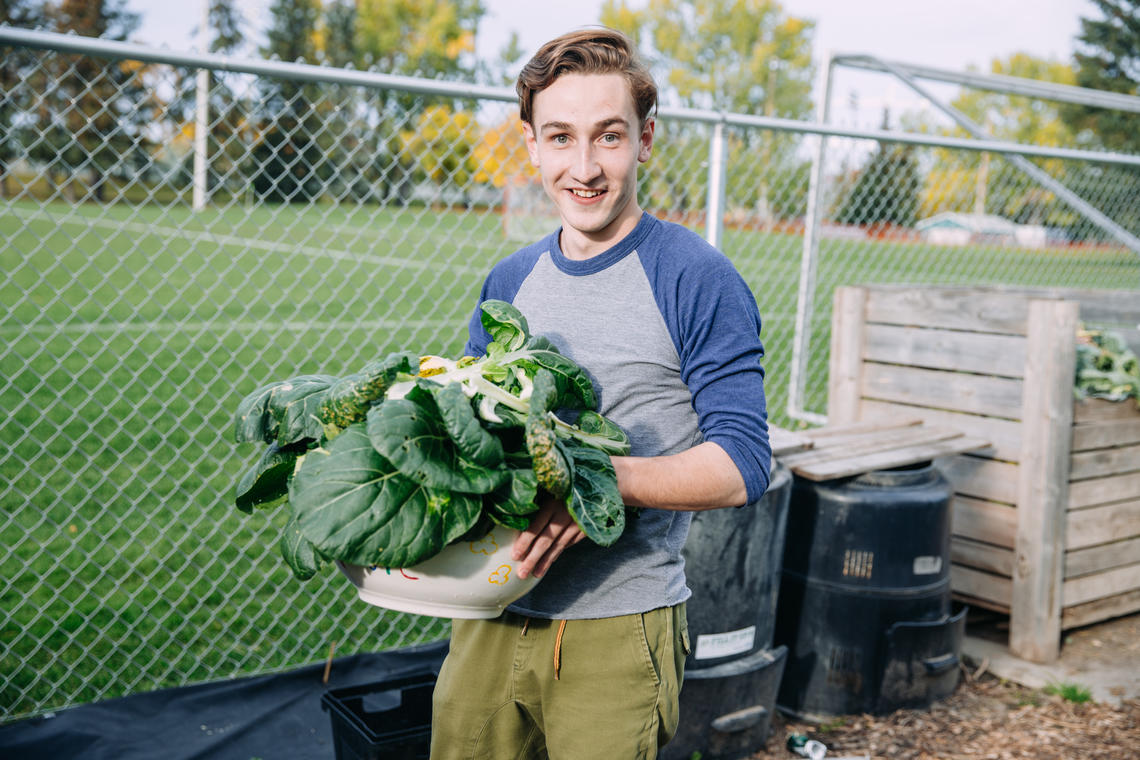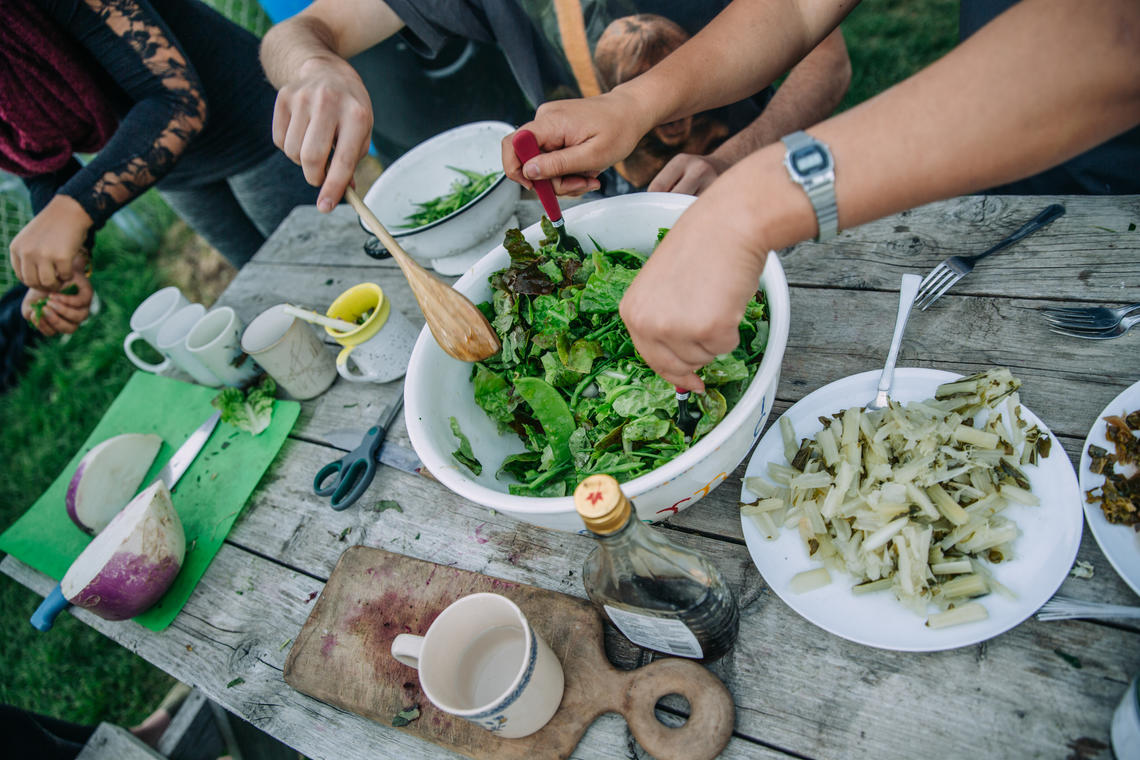
The campus community garden grows a wide variety of garden staples.
Torren Arndt
Oct. 23, 2015

The campus community garden grows a wide variety of garden staples.
Torren Arndt
Over the summer, the University of Calgary Community Garden moved from its location south of Varsity Courts (Student Family Housing) to just west of Lot 49, near the Cascade Hall residence building. The garden produced a hearty autumn crop despite the fact that seeds were sown a little later than usual this year.
As part of the transition, operational aspects of the garden are now being co-ordinated by the Office of Sustainability in partnership with the Community Garden Club which oversees events, projects and other student partnerships.
Various student clubs are already becoming involved in the garden, including the EcoClub and Aquaponics clubs, and every Thursday, the Community Garden Club hosts a Thursgarden event as an opportunity for more campus members to get involved and help tend to the garden.

April Jang (left), acting president of the community garden club, collects zucchini.
Torren Arndt
Students reconnect with nature and food
"Through the Community Garden Club, students have the opportunity to learn and experience gardening as a group, working together to produce a bountiful harvest," says April Jang, acting president of the community garden club and peer helper with the Office of Sustainability.
"My favourite part is the fact that it allows students to easily reconnect with nature and with our food," she says. "I know as a student, I sometimes get so caught up in my academic life that I forget everything else. Being able to get outside and work to grow your supper really changes that perspective."

Francis Mayer, treasurer and garden visionary for the Community Garden Club, collects bok choy.
Torren Arndt
Project demonstrates sustainable agricultural practices
In addition to promoting local and healthy eating, the garden also demonstrates sustainable agricultural practices. All organic waste from the garden is composted and reused to plant the following year's crops. The Bow River acts as the garden's main water source to reduce potable water use, and materials such as cardboard are used as a biodegradable method of keeping weeds from competing with plants.
Additionally, members are piloting methods of permaculture and companion planting with the intention of making the garden more sustainable and self-sufficient.

Community Garden Club members make dinner for participants of Thursgarden using food from the garden
Torren Arndt
Garden being utilized by various community and campus groups
The SU Wellness Centre and the Faculty of Environmental Design have also used a portion of the garden for a Build for Bees project in which they have designed and placed bee habitats, also known as bee hotels.
Community members and organizations are also getting involved. The social enterprise Eden Project used their plot to grow food for the Calgary Food Bank. The Community Garden Club also donated a surplus of potatoes to the Campus Food Bank and partnered with the SU Wellness Center's Campus Community Kitchen project.
Students, faculty, staff, alumni and community members are all invited to partake in the garden by reserving a plot next spring. Plot reservation details and opportunities will be made available in early 2016.
To learn more about the garden visit the Community Garden Club website, Facebook or Twitter pages.